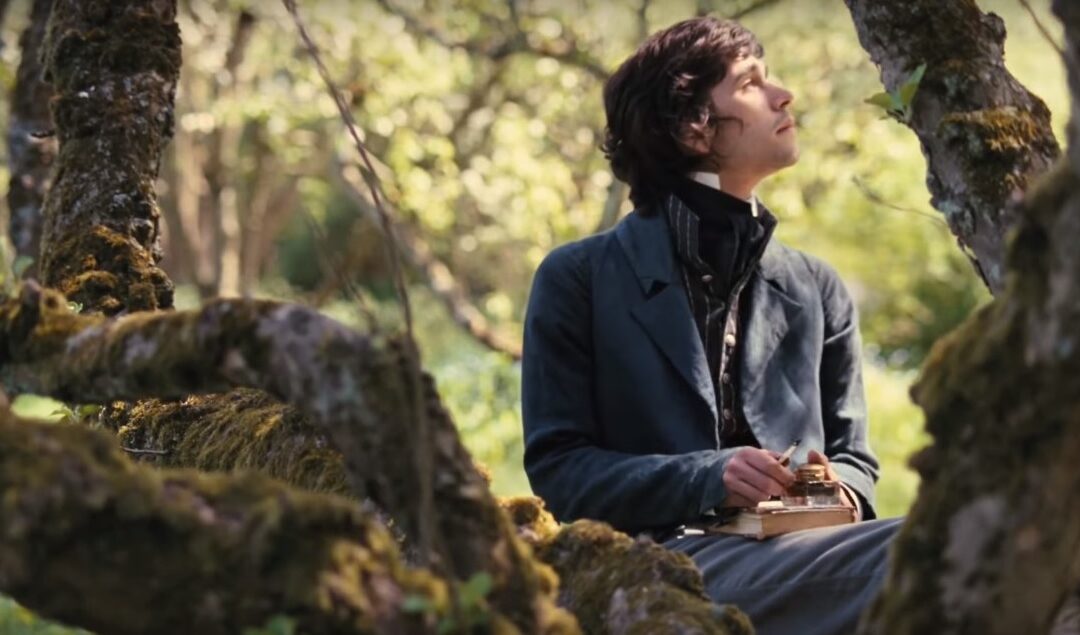One of Keats’ last poems tells the tale of his doomed love for Fanny Brawne.
Bright star, would I were stedfast as thou art—Not in lone splendour hung aloft the nightAnd watching, with eternal lids apart,Like nature’s patient, sleepless Eremite,The moving waters at their priestlike taskOf pure ablution round earth’s human shores,Or gazing on the new soft-fallen maskOf snow upon the mountains and the moors—No—yet still stedfast, still unchangeable,Pillow’d upon my fair love’s ripening breast,To feel for ever its soft fall and swell,Awake for ever in a sweet unrest,Still, still to hear her tender-taken breath,And so live ever—or else swoon to death.
Through Charlotte’s love of Keats, I have become a fan of the great man. Watching the film Bright Star with her and hearing her wide knowledge and infectious passion for the poet is something which will stay with me. The cover photo for this post is taken from the film. One of the memorable scenes for us was Ben Whishaw looking up having climbed a tree barefooted. Reading Keats is very much, for me, like this photograph. Floating atop a tree and letting the words wash over me. This poem is no different.
The poem starts on a melancholy note, as thought he speaker is longing to be someone else. The star is the object of the poem and represents both eternity and transience. The star is of course Fanny Brawne, his neighbour and companion through the later years of Keats’ short life. Keats wishes to remain with his fair love, with his head on her chest looking up, forever. I imagine given the year this was written (1818 or 1819), Keats may have been aware of the illness which was to take his life in 1821. The main themes of the poem are love, life and death, purity, steadfastness and sensuality.
The last four lines are particularly evocative. We can see the depth of moving passion he has for his bright star. He takes special pleasure in listening to her breathe and indeed breathing with her while looking up. He is so profoundly and purely in love that this moment will suffice for him eternally. Would that we could have a love as steadfast as this. How lucky is the man who can love purely in this age of relentless and aggressive secular rhetoric.
I would like to thank my own bright star, as I do daily, for her own steadfastness and for introducing me to one of the immortals in Keats.


